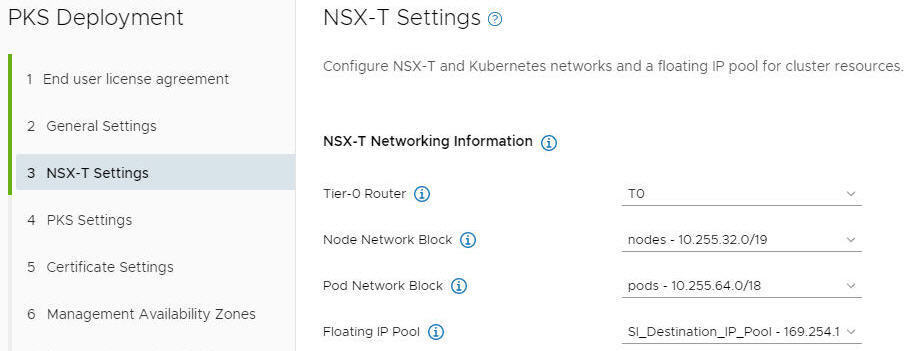VMware Cloud Foundation 3.10.1.2 and lower releases enables automated deployment of VMware Enterprise PKS on an NSX-T workload domain. Beginning with VMware Cloud Foundation 3.10.2, automated deployment of VMware Enterprise PKS is not supported.
Enterprise PKS is a container services solution that simplifies the deployment and management of Kubernetes clusters. Enterprise PKS manages container deployment from the application layer all the way to the infrastructure layer according to the requirements for production-grade software. Enterprise PKS supports high availability, autoscaling, health-checks and self-repairing of underlying virtual machines, and rolling upgrades for the Kubernetes clusters.
Enterprise PKS on Cloud Foundation is deployed on a single site. Within that site, stretched vSAN clusters are supported.
Enterprise PKS Components
- PKS appliance deploys VMs that form Kubernetes clusters (primary and worker nodes).
- Harbor Registry is an open source enterprise cloud native registry that stores, signs, and scans container images for vulnerabilities.
- BOSH Director keeps your Kubernetes environment healthy.
- Operations Manager configures PKS appliance, Harbor Registry, and BOSH Director.
Enterprise PKS Availability Zones
- Management availability zone
Enterprise PKS management components (PKS appliance, Harbor Registry, BOSH Director, and Operations Manager) are deployed in the management availability zone.
- Compute availability zones
Kubernetes cluster nodes are deployed in compute availability zones.
- Kubernetes availability zone
Kubernetes availability zone (also referred to as service network) is for legacy workloads and is not used in the Enterprise PKS solution deployed by Cloud Foundation.
